





| Corn Bunting (Miliaria calandra (Linnaeus, 1758)) |






|
|
Scientific name: Miliaria calandra (Linnaeus, 1758) Common name: Corn Bunting Other names: Other scientific name: Emberiza calandra. French name: Bruant proyer Order: Passeriformes Family: Emberizidae Size: Body size : 17 to 18 cm; Wingspan : 26 to 32 cm; Weight : 38 to 55 g Habitat: Plains, meadows, steppes, cultivated areas even without trees and bushes. Food: Mainly grains, grasses and berries. It also eats some insects, spiders and small molluscs. Juveniles are mostly fed with insects. Nesting: The female builds a nest with dry grasses, on the ground, in a meadow or on a cultivated field edge. There is one brood (sometimes 2) per year. Females lay 4 to 5 eggs between April and June. Migration: Sedentary, only northern birds move southwards in large flocks in winter. Geographic area: Europe except extreme north, Central Asia, Asia Minor and North Africa. |
The Corn Bunting's plumage is greyish brown, sometimes a little yellowish, with longitudinal brownish black lines. The upper side of the body is darker, the underside is rather pale. Females are the same colour than males, this is an exception in Bunting species. It also differs from other Buntings by the lack of white colour on the tail. The pale coloured bill is very typical. It is sturdy and conical. Males are used to perching high to sing. During the bad season, Corn Burnings meet in large flocks with Yellowhammers. |
| [To know more about the Corn Bunting] [Next picture] [Top] |
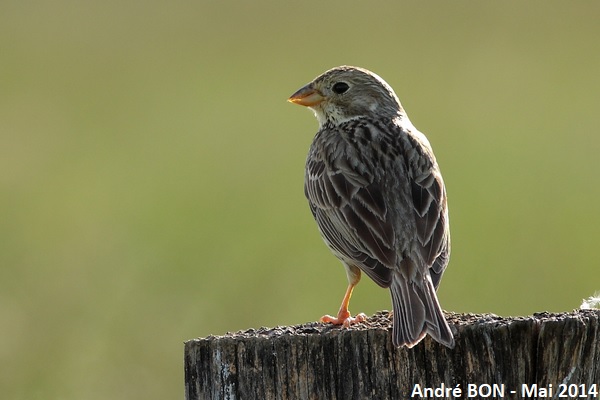
|
I am used to often observing numerous flocks of Corn Buntings in the cultivated areas. They land on the fence wires or on the posts. I have been able to approach this one driving my car. |
| [To know more about the Corn Bunting] [Next picture] [Previous picture] [Top] |
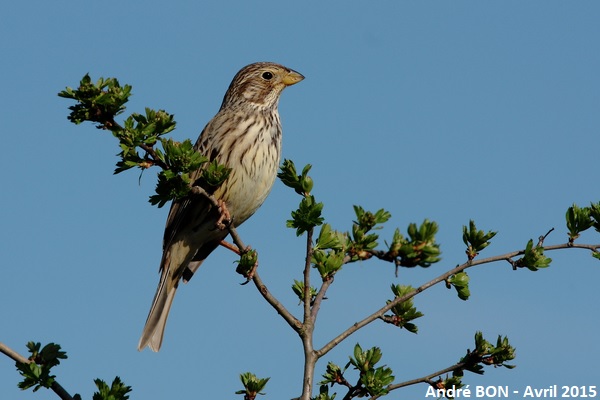
|
Same location, same method to approach. This one is perched higher. You will get a picture with a blue sky in the background, this is not what I prefer. |
| [To know more about the Corn Bunting] [Next picture] [Previous picture] [Top] |
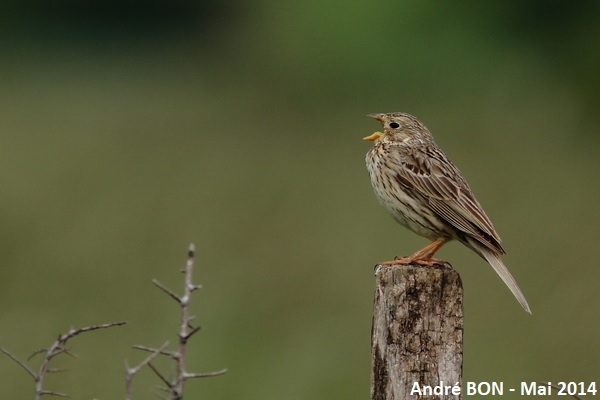
|
You can see the typical bill of this singing male. |
| [To know more about the Corn Bunting] [Next picture] [Previous picture] [Top] |
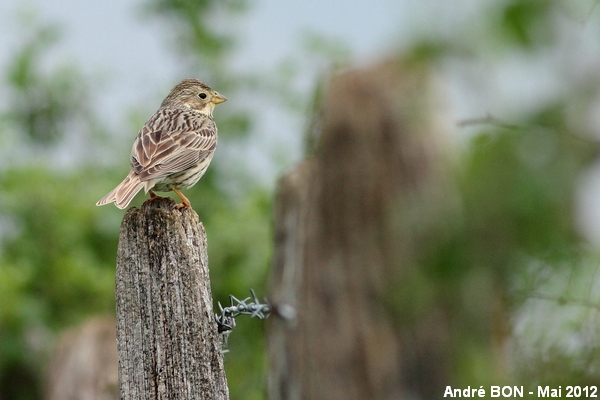
|
Another picture shot from my car. |
| [To know more about the Corn Bunting] [Next picture] [Previous picture] [Top] |
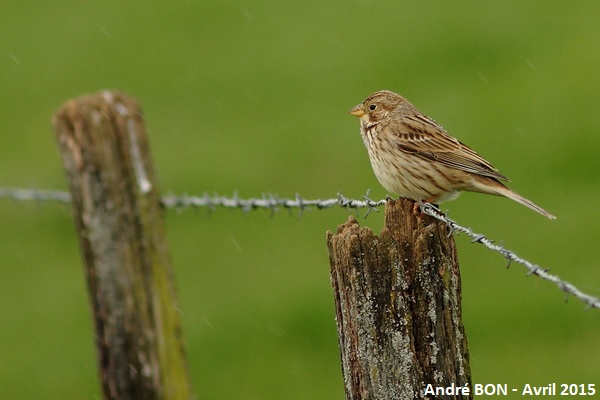
|
This time the weather is different, it's raining. |
| [To know more about the Corn Bunting] [Previous picture] [Top] |
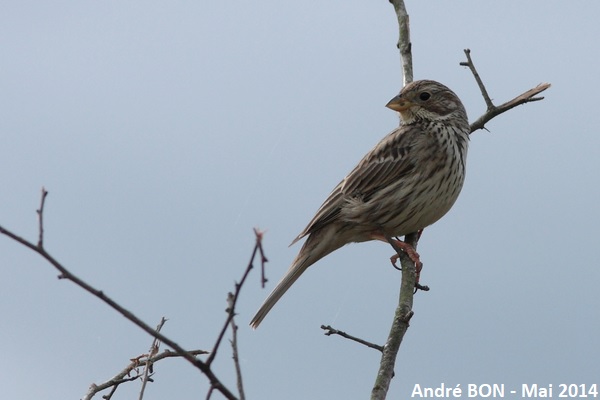
|
Corn Buntings are not very shy birds. No need to wait in a hide during hours to shoot pictures, it is also possible to get very close just by walking slowly. |